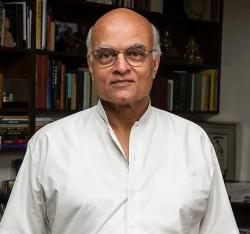In this episode, Tanvi Madan, fellow and director of the India Project, guest-hosted a conversation between Distinguished Fellow Shivshankar Menon and Nonresident Fellow Joshua White on how China’s deepening economic investments across South and Southeast Asia and India’s own expanding presence are affecting the regional balance of economic and political cooperation and competition.
Menon, former Indian ambassador to China, and White, former senior advisor on South Asia in the Obama administration, present viewpoints from New Delhi and Washington on local sovereignty and what it means to have a “free and open Indo-Pacific.”
Show notes:
- The rise, fall, and rebirth of the ‘quad’
- How China bucked Western expectations and what it means for world order
- China’s flagship port in Pakistan shackled by heavy security
- The only way to deal with the Chinese is directly
- How China is challenging American dominance in Asia
- Brace yourself: South Asia’s geopolitics is becoming more complex, less stable
- Choices: Inside the Making of India’s Foreign Policy
Direct download of this episode (mp3)
With thanks to audio producer Gaston Reboredo, Chris McKenna, Brennan Hoban, and Fred Dews for additional support.
Subscribe to Intersections here or on Apple Podcasts, send feedback email to [email protected], and follow us and tweet us at @policypodcasts on Twitter.
Intersections is part of the Brookings Podcast Network.






Commentary
PodcastThe U.S., China, and India balancing act in the Indo-Pacific
March 28, 2018